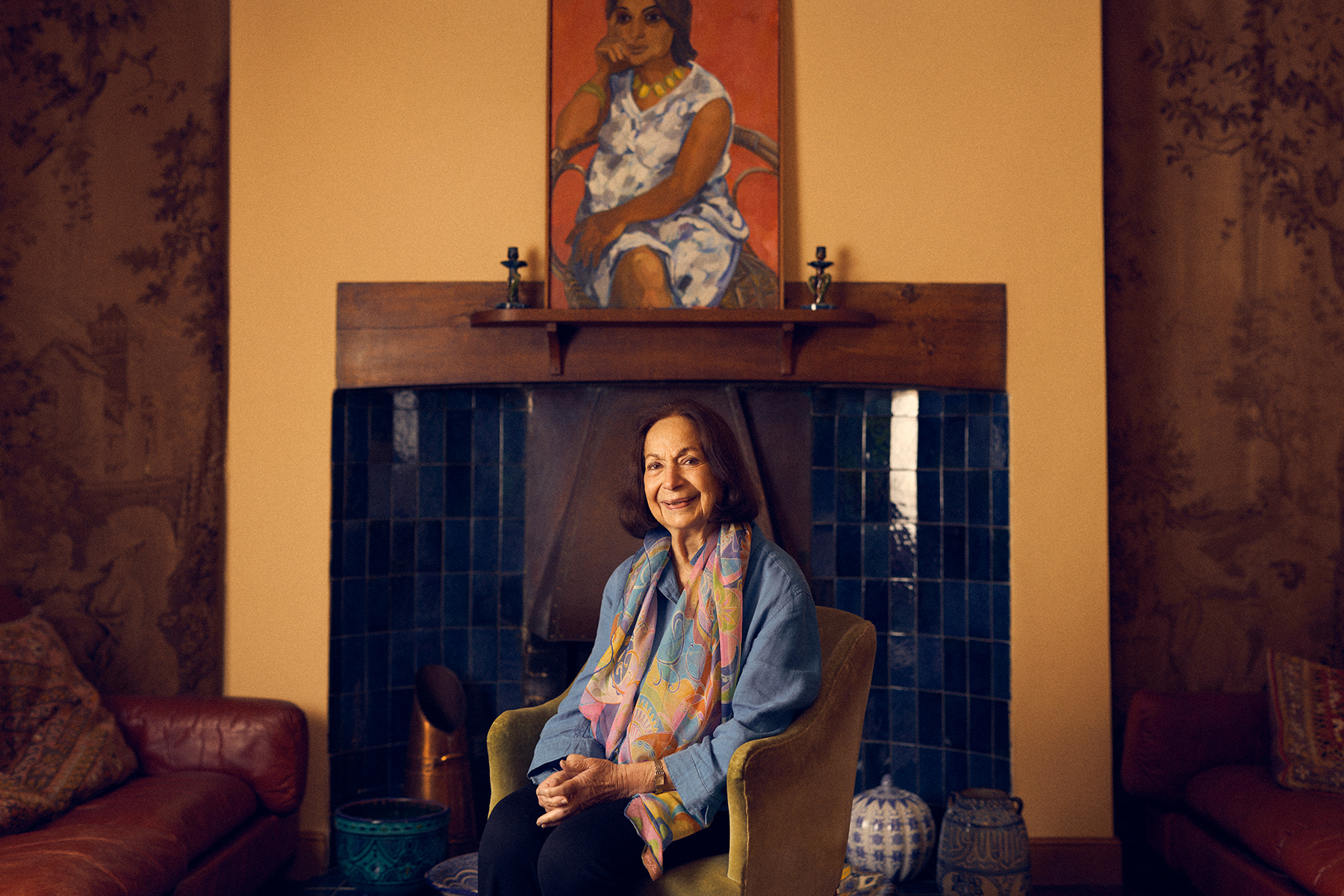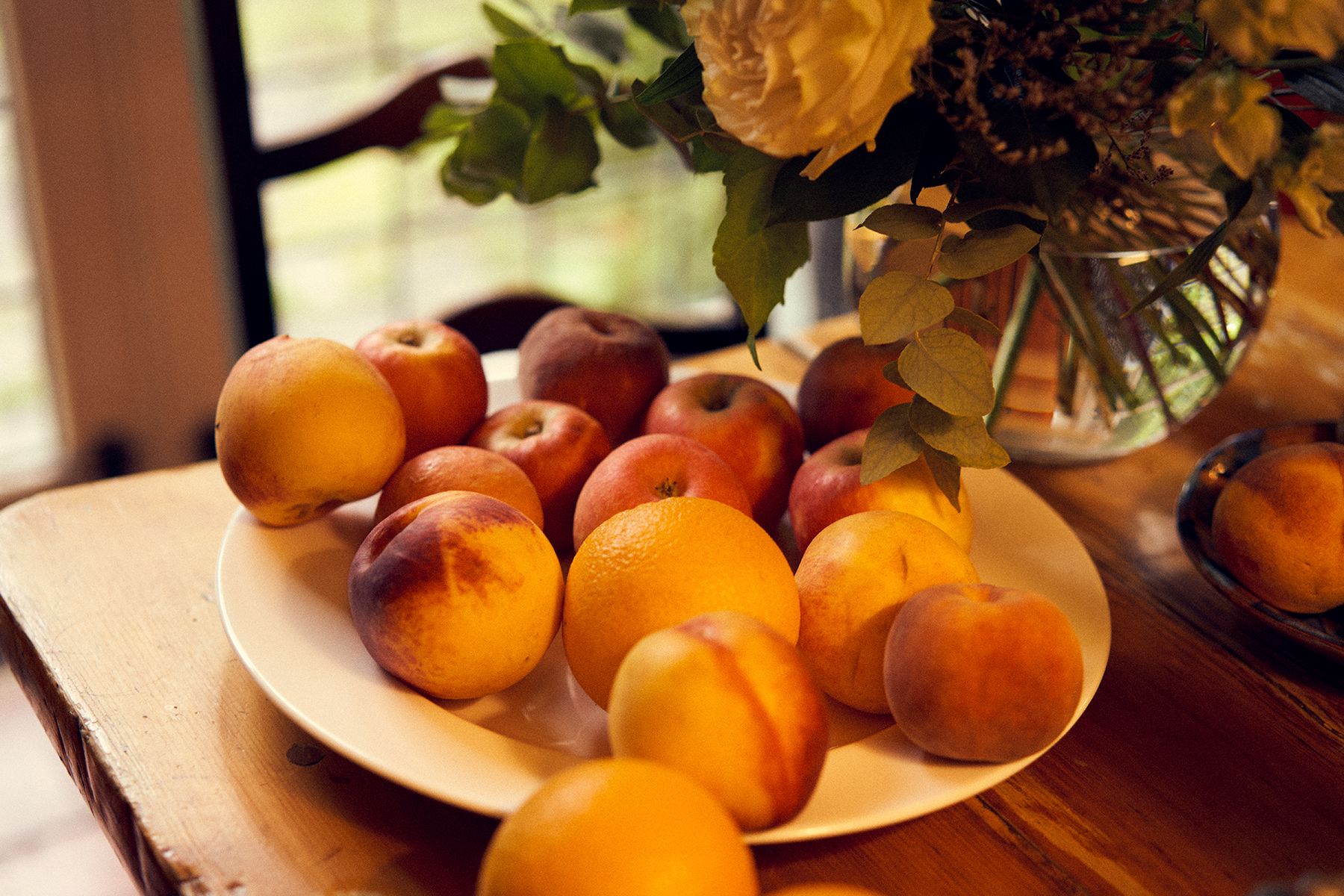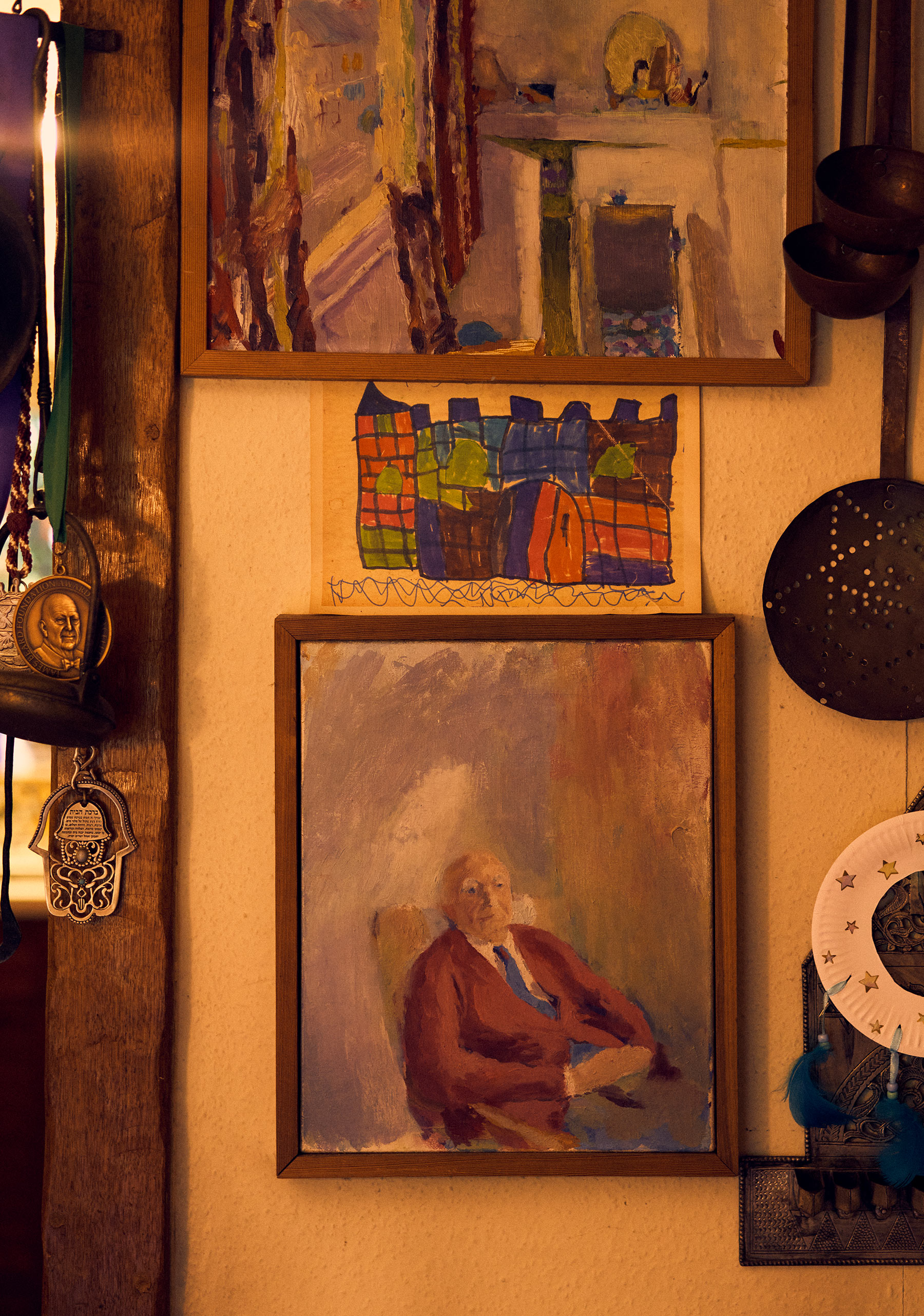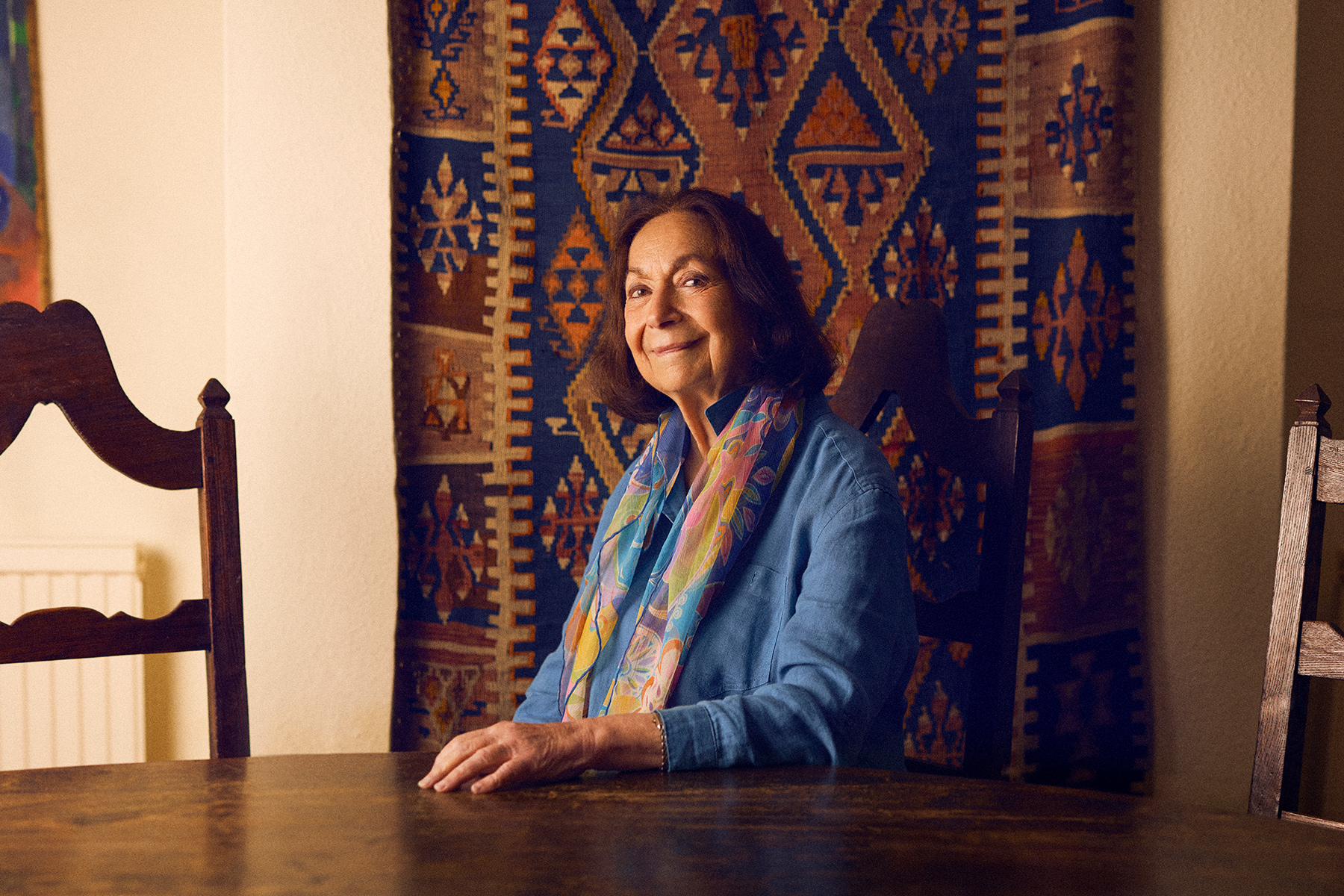
- Home |
- Search Results |
- Claudia Roden: the woman who defined our diets
Claudia Roden: the woman who defined our diets
Decades before Yotam Ottolenghi and Nigella Lawson, a single mother from Cairo was bringing Middle Eastern and Mediterranean recipes to drab British cuisine. With Med, Claudia Roden remembers a life lived through food.
“What you do with the memory of a dish often turns out to be entirely different from the one that inspires you”, writes Claudia Roden in her latest book, Med. It could arguably serve as a summary of her career. Now 85, Roden has spent the past six decades translating memories into dishes, first from Jewish refugees fleeing the Suez Crisis in the mid-Fifties, later from her travels around the Mediterranean and the Middle East. In the process, Roden captured recipes that had only previously been passed down like heirlooms – through families, never written down – and introduced a grey, tasteless British food culture to flavour. Before Yotam Ottolenghi, before Nigella Lawson, Claudia Roden was the woman bringing hummus, tahini and orange cake to our tables.
“The new book is about my memories,” she tells me. “All the decades of writing about food, which started, really, when I was 21.” We’re sat on wicker furniture in a room papered in William Morris willow leaves off to the side of her kitchen. There’s a sprawling asparagus fern in the corner, and views out to the garden. I am trying to scoff a freshly made walnut cake as politely as possible – Roden will later insist that her guests eat the whole thing before the morning is out.
Roden has lived here, in an art-filled house at the end of a North London cul-de-sac, for nearly 50 years. “Everything is sort of vintage,” she laughs, “because I haven’t changed much!” It is a home painted in sunset colours: boldly patterned yellow-and-blue tiles cover the kitchen, there’s a dresser swagged in family photographs. On the table – among paperwork, peaches, and a plate given by Ottolenghi – sits the essentials she spells out in Med: “extra virgin olive oil, flaked sea salt, a black pepper mill, and ground chilli or chilli flakes for those who always like to add it.”

It was in this kitchen, in this home, that Med was pulled together. While the recipes hail from across the Mediterranean – the souk el hammam of Cairo in the late-Eighties; Fez medina; a village fete in Provence; in one instance, Luciano Pavarotti’s hotel room (“for a long time,” she writes, “whenever I cooked an Italian dish, I played his ‘O sole mio’” – the song ended up on her Desert Island Discs selection) – they were tested and selected here. Roden has thousands of recipes squirreled away in notebooks; she started to plan menus and “easy meals I could handle alone” to cook for others.
“I wouldn’t make things just for myself, I had to do it for someone,” she explains. Her grandchildren are millennials in their twenties and thirties. “I just say come whenever you want, and I give them something to eat. They bring their friends, come after university and medical school, and a lot of them are vegetarian and vegan.”
Med, then, is that rare thing: a cookbook that reflects the need for simple, modern everyday suppers steeped in fascinating food history. In this way, it fits the mould that has defined her books over the decades, combining practical instruction with literary cultural reportage. Med boasts recipes for octopus in red wine and mozzarella soaked in cream, but also whole chapters dedicated to soups, salads and grains. There are three different recipes for aioli, depending on how much energy you can commit (the quickest can be made in minutes. As Roden writes: ‘Hurray!’). Each is accompanied by an anecdote from Roden’s life and travels; she smuggles advice on buying fish alongside stories from her art student days. It’s a hungry joy of a book to read.

Talking to her, you realise how many stories Roden must have been sifted out. She was born in Cairo in 1936, to a Syrian Jewish family and into a multicultural community. “We were from all over,” she says, “and we would go to each other’s to eat because it was a society that was all about entertaining and hospitality. It was the most important thing in our lives.” She moved to Paris to study at 15, and then began an art degree at St Martin’s. While she was there, her parents – who were Jewish – were “thrown out” of Egypt and “suddenly arrived” on her doorstep, part of a migration over a few weeks leading to the disappearance of the once 80,000 strong community.
“There was a lot of trauma,” Roden says. “We had our Egyptian passports taken away.” For the next decade, she was “terribly involved with Egyptian Jews. People were exchanging recipes. They’d say, ‘Give me a recipe for hummus, or for kibbe, because I will probably never see you again, and it will be something to remember you by’. There was an extreme value and importance of a recipe because there had never been a single cookbook [in Egypt]; I had never seen a printed recipe before I came here. Nobody had. They were just handed down in families, that’s why they were so precious.”
There was this image that the desert food, the Arab food, was horrible, and so I just had to say, ‘well, it comes out of a culture that is rich and beautiful.’
When her marriage broke down in the mid-Seventies, Roden turned to the recipes to support her children. “I became a single mother quite early on and I just had to earn,” she tells me. “So I went to a lot of newspapers and said, ‘Do you want any recipes?’. That’s how I started writing.”
It was giving cookery classes at home that made Roden realise she was writing “not for myself and all the Egyptian Jews”, but to English people who’d barely encountered olive oil. When she was working on her first book, she says, “There was this image that the desert food, the Arab food, was horrible, and so I just had to say, ‘well, it comes out of a culture that is rich and beautiful.’” Her first book, A Book of Middle Eastern Food, was released in 1968 – the year Ottolenghi was born (he would later call it “informative, delectable and incredibly useful") – and brought za’atar, preserved lemons and pomegranates to kitchens relentlessly dishing up meat and two veg.

Not yet 50, and faced with an empty nest, Roden’s travels began in earnest. Her children “all left home on the same day: two of them to go to New York, the other to university in Manchester,” she says. “I just said, ‘that’s my time now. I’m going to travel and I want to be in the Mediterranean.” A linguist (French is her mother tongue, but she also speaks Spanish, Italian, Arabic and English) in her middle-age, she was “old enough to be trusted” – crucial to enable Roden the fly-on-the-wall research she desired, often in the kitchens of local women she’d never met before. “I was obsessed with getting recipes,” she says.
She would sit in cafes and strike up conversations with strangers, explaining she was a food writer. “People were surprised that somebody wanted to know about their cuisine, really surprised. And they all cooked the way their mothers cooked; nobody wanted to cook in any other way.”
More recently, there was an encounter with a tapas-loving nun who took Roden on a gastronomic tour of Seville. “Some of her recipes are in the book,” she says. “She was in a convent of old nuns – she was older than me and died last year – and I heard that she was the greatest cook, and came from a grand old family. And so she booked me into a convent near her where they made pastries, but I only realised when I got there that I couldn’t talk to the nuns because they were silent,” Roden grins. “But I could get the recipes through the turnstile.” There were a lot of crucifixes in the convent, she says, and a lot of pastry.
Roden and I are at risk of running a full hour late - there are tales of women chef conventions in Turkey and terrible nouveau cuisine in 1980s France, there are stories about the River Café (she complimented a dish while eating there with Madhur Jaffrey, only to be told it was her own recipe) and carpet dealers. I have asked a total of three questions; it would be foolish to interrupt.
Finally, I say, how did she start to whittle down the recipes from a life of collecting? “All of them were from a memory that kept me happy,” she replies. “I’m too old to remember. But as soon as I thought of a dish, I knew where it was, and who it was from, and I could see that face and hear a voice. I just thought, ‘Yes I’m bringing my life into my everyday, now.”
What did you think of this article? Email editor@penguinrandomhouse.co.uk and let us know.
Image: Stuart Simpson/Penguin